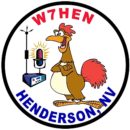ARRL – Kids Day
On-AirTwice a year, ARRL offers an event designed to promote Amateur Radio to our youth. Share the excitement with your kids or grandkids, a Scout troop, a church or the general public! Kids Day is designed to give on-the-air experience to young people and hopefully foster interest in getting a license of their own. It […]
